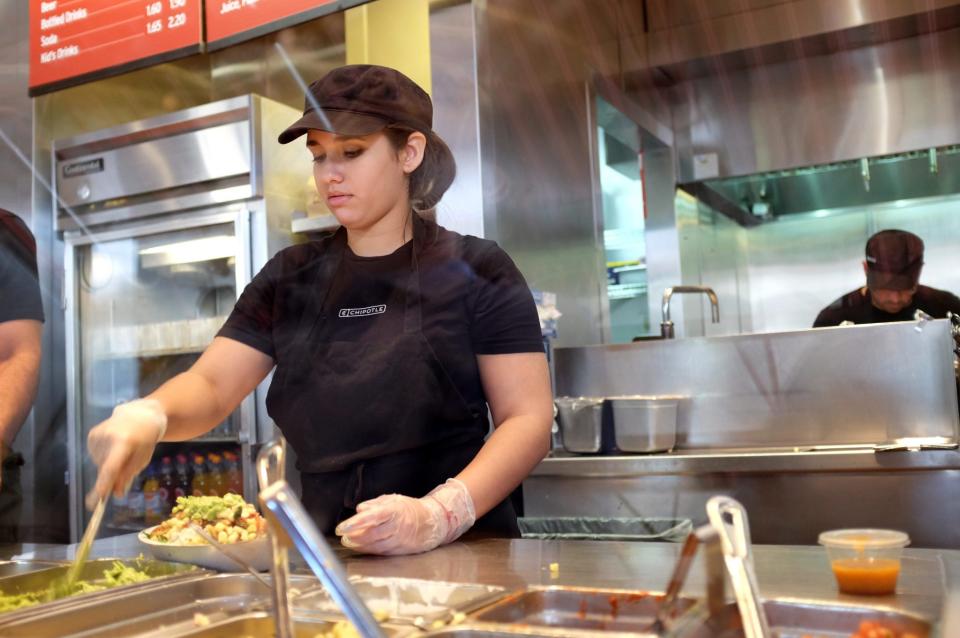Raising Cane’s managers now make $175,000 as new laws and shortages push fast-food salaries to six figures

Despite running on Dunkin’ or lovin’ happy meals, America has a long history of underpaying the fast-food workers who make and deliver said iconic staples of the nation’s diet. But for some of the employees at Louisiana-based chicken chain Raising Cane’s, wages are no longer so poultry, or even paltry.
The industry’s changing salaries aren't necessarily a product of sudden generosity or the ghost of Christmas future paying a visit. Rather, it’s mostly due to California’s new law which implements a $20 minimum hourly wage for fast-food employees, higher than the state’s $16 hourly minimum in other sectors.
It all means that some higher-up frontline employees are set up for six figures, as 27-year old Monique Pizano explains to the Wall Street Journal. Factoring in potential bonuses and the location of the branch, a general manager at the franchise can make up to $174,000 yearly.
Pizano, who has been a manager at the chain for three years now, saw her base salary increase from $79,000 to $85,000 this past March, according to the Journal. She’s also eligible for bonuses of up to $7,500 monthly for reaching certain goals—for an annual take of $175,000 in the best of circumstances.
While Cane’s base pay hike coincided with California’s FAST Act, “we had already made investments in Crew wages ahead of this change,” CEO and COO of Raising Cane’s, AJ Kumaran, said in a statement to Fortune, adding that staff’s hourly wages increased $4 over the last few years. Kumaran recently noted that a less-noticed aspect of the law is a pay increase for full-time managers to at least $83,200 annually (at Cane’s, the bar is $84,000 plus bonus, Kumaran said).
“With this move, all of our Salary Managers received a ~10% - 20% raise depending on their current Management Level,” he said, calling it a “huge win” for personnel which helped the company attract future staff. While the law had a “big impact” on the chain, Kumaran said, Cane’s made up for it by raising prices about 7%, he told CNBC.
The pay has “been life-changing for my family,” Pizano said, adding that she was able to go to Japan for her honeymoon and sock away money for a down payment on a house. It’s not an easy job, as Pizano is moving around non-stop, putting in 15,000 steps on an average 10-hour day, in a location that moves $9 million worth of food annually, per the Journal.
The shifting of the tides for fast-food workers has been a long time coming. Even as the cost of living soared in recent years, the federal minimum wage has not increased since 2009, staying at low $7.25 hourly. Adjusted for inflation, the minimum wage hasn’t been worth this little since the mid-1950s, according to one calculation. Fast-food workers, who often made the very lowest pay, have recently made some monetary gains in light of retention issues as the restaurant and hospitality industry struggled to recover after the pandemic. Just after the lockdown hit, the restaurant industry bled — losing 6 million workers between the months of March and April 2020. Recovery has been a years-long process that finally gave employees the upper hand.
Chains scrambled to finally pay up, offering managers $100,000 annually at Taco Bell or Chipotle and $180,000 yearly at In-N-Out. It represents a monumental change in how these employees are compensated from as recently as a decade ago. One report from 2014 found that one in five households with someone working at a fast-food company had an income below the poverty line.
Of course, hourly workers in other states besides California are still often subjected to less than living wages. But California's new law has set the stage for a new era for employees.
“What happens in California fast-food restaurants likely won’t end there,” Bloomberg economists Anna Wong and Estelle Ou note.
As for Raising Cane’s, its CEO Kumaran told CNBC that the business is doing just fine with the mandated change in pay, as bolstered by its cult following which is willing to pay a bit more for its product. Last year, the franchise raised wages to an average of $19.50 hourly, Kumaran told Yahoo Finance. "Once you take care of people, the business will pay for itself,” he said. And Kumaran’s words echo today, as he notes the franchise has seen almost a positive retention rate and a “10% improvement in turnover” since the wage increase.
This story was originally featured on Fortune.com

 Yahoo Finance
Yahoo Finance 